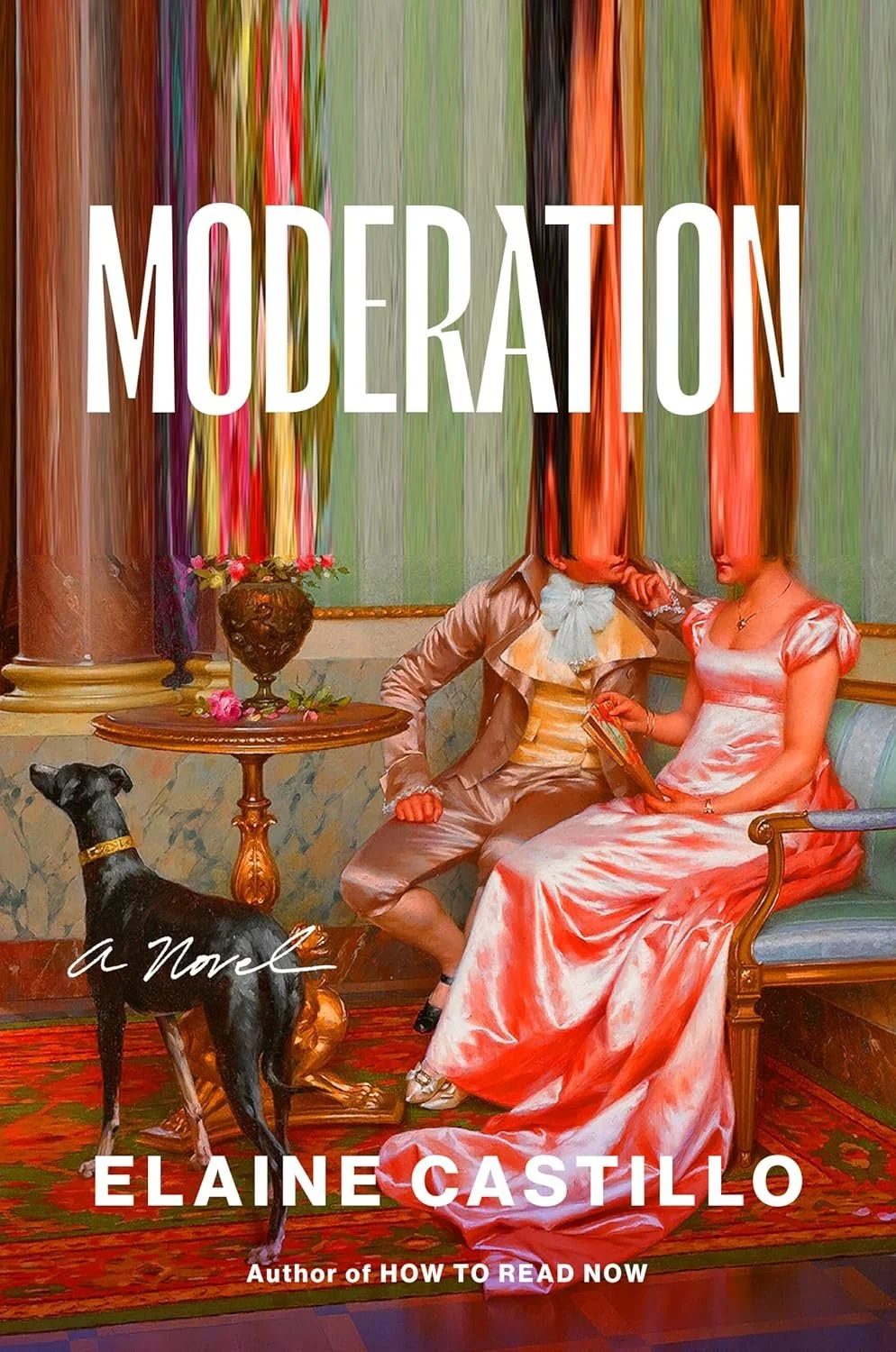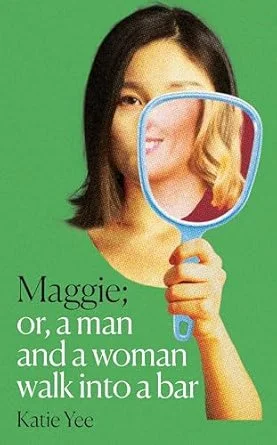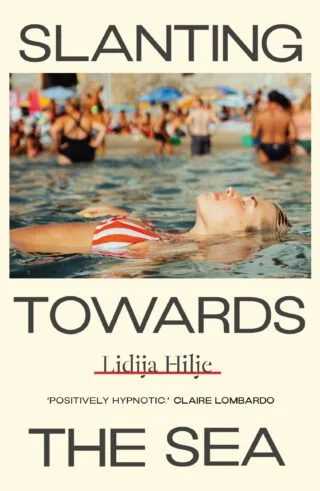Friendship and Loss: A Conversation with Michael Pederson
“I'm all for the cathartic. I wear it like a cape.”
First, could you tell me about the process of turning what started as quite a personal diary into what became a book? And as a poet, why and how did it manifest as prose rather than poetry?
So, I started writing the book in a place called Curfew Tower in Northern Ireland; it is an artist residency set up by Bill Drummond. People normally know him as the founder of the KLF, the big pop band, and a lot of people know him as the guy who burned a million quid on the island of Jura – you get publicity for such things. But he’s an interesting arts provocateur, writer, and just a curious human to be involved with, and he’d offered us, Neu Reekie, the literary organisation I run, the keys to the Curfew Tower in Northern Ireland for a year. Being this sort of philanthropic head of the organisation that I was, I took the hard month of July – the hard summer – in this beautiful seaside town and sailing club. I thought, I'll offer everyone else the easier ones, I'll take the gristle of it myself.
So, I'd agreed to do that quite a long time in advance and I was intending to write a third poetry collection. I’d done the last one, Oyster, with Scott - he’d illustrated it and I’d done the poems. It was getting to the point when I thought I should think about doing another collection, so I thought I was going to go there and write.
Then Scott passes in mid-May. And the time from mid-May to opening the front door to Curfew Tower on the 1st of July, in a sense, was an emotional lifetime, but at the same time, was just this blur. And then all of a sudden, I found myself being switched from an environment where I was surrounded by people in the know, who were grieving, consoling, looking after me, me looking after them – this whole supportive bubble of every face imaginable – to going somewhere where I literally knew no one for this isolation period, staying in this old spooky tower on my own for the month. I thought it was risky in one sense, I was still quite tumultuous and in shock from everything that had happened, and I definitely still hadn’t got a grapple on it, but in the other sense, it was exactly where I wanted to be. I thought I was ready; I could think and steep in the memories of all this for a period of time.
So as a way to start writing, because it was quite a daunting task thinking about what I was going to write about, I started doing these little diaries about what I had been up to in the day – long coastal walks and weird things I found in the tower or the post I was getting, just really simple day-to-day activities which was really supposed to be a writing catalyst to get me ready to sit down at the page and talk about bigger, bolder things. And to my surprise, those came out in prose and diary form. I thought, well that's okay because we're just warming up to write something bigger; well, I wanted to write about Scott – it was consuming me at that point in time.
First of all, I wanted to write about this road trip we had recently been on because they were four of the most beautiful days of my life with this incredible human, and I wanted to separate them from what happened next. I wanted to almost break the two stories apart: of Scott not coming back from that trip, leaving this planet, to this really joyous celebration of a road trip. And I thought, I want to take that back on my own terms. So, I started writing about the road trip in hyper detail and that too came out as prose. I thought, well that's okay, it’s prose that will turn into poems at a later date. And then I got so buoyed up and almost healed to a certain extent, or certainly cauterised over the wound, by writing about some of those silly, joyous experiences, that I didn't want to stop. So, I just started picking favourite moments, going back to our trips to South Africa, to meals that we had eaten together, things that I felt made our friendship what it was. I found myself on this scavenge through my favourite moments in this friendship, which was still coming out in prose at that point. Again, I reassured myself that it was okay, because we would manufacture these into poems at a later date, and maybe I just needed to prove that I could still sit down and write in this state, and I was doing that.
And then the story of Scott and the friendship started unlocking memories of all of these other friendships. And I thought, well I need to understand who I am in this friendship with Scott, this version of myself, and I need to understand who I was in all of these other friendships which are no longer with me to some extent, that have elapsed in their time frame. So, it became this sort of stirring pot of ingredients about what friends made me who I am today. It was a scavenge that Scott sent me out on and it became slight obsession, just writing this big archive of ourselves through a map of different friendships. And months and months into that, I still didn't want to stop because it was such a cathartic experience.
Then, when I sat down with this abundance of prose, at a point where I felt comfortable, thinking, well it's probably time to do something with this writing, well of course we're going to turn it into a collection of poetry, it was stubborn, and it was obsolete, and it refused to turn into poems. Anytime I tried to transfer one of the prose documents into a piece of poem, it just didn't work; it downright, obdurately refused, and the poetic version of it seemed like it was lacking something of the authenticity of the prose version of it. So, I just had to sit down and accept that I had written a book of prose.
Then the daunting task began of trying to build it into an actual book with a narration because it wasn’t written that way. Poems are these stolen moments of time, they can jump around timelines, they don't have to make sense in terms of what came before or after them. I mean you can sequence them by throwing them all up in the air and then just put them in that order; all of a sudden, I had this responsibility to the reader to present this as something which was pleasurable to read. There are versions of the book that probably could have been a very uncomfortable and unenjoyable read because of how fast they darted around, because of my nonchalant-ness to any sort of overarching narratorial arc that came with them being the dress rehearsal, carrying the ambition to be turned into poems. So, the process of turning it into a book was much longer than writing it because I had to find a collective synergy, which I found really difficult to do. I didn't want to be as forensic as doing a straight chronology, I wanted to jump around a little bit, as it had been written. So, I guess the more laconic answer is that it’s a prose book entirely by accident on account of it refusing to be turned into a poetry book.
You mentioned something that I was hoping to ask you about - the idea of catharsis. I sometimes get the sense that a lot of people rail against this idea of catharsis, claiming that the writing of a traumatic experience can almost feel like re-living the trauma. So, I just wanted to ask you what you thought about that? It seems as though you're more on the side of writing being a means of solace and catharsis…
Absolutely. Writing this book entirely cauterised the wound. I was able to immerse myself in joyous moments by visiting them, steeping in them, with a hyper emotionality and a real dedication to reinvesting in that period of time, closing my eyes, trying to engulf myself in the moment of the memory to an extent that it almost enabled me to time travel. I didn't jump straight into reading grief literature or watching grief films, I did the opposite. I was watching fantasy films and magical realism and feel-good movies because that was exactly where I was in terms of exploring these friendships. I wasn't ready to tackle head-on the ferocity of the grieving process, it seemed like too much for me at this point of time, especially in this period of isolation. I knew that I could get into trouble with it, it could take me off to newer, darker places, and I'm no stranger to a forlorn bender, which I wanted to avoid at all costs because it was disingenuous to the ceremony or celebration of the memories I was exploring. So, it was entirely that for me, it was a crutch that got me through this period of time.
By writing it down, I had to try and one, articulate and then hone and understand and analyse how I felt in that moment. But second to that, I had to try and write it, or present it, in a manner which was open, and allowed a reader to project their own life into it, so that the book had some sort of collective currency of conversation and thus had value as a book. If somebody read the book and weren’t reminded of one of their own friends or didn't leave the book finding incarnations of their versions of themselves within that point in time, then the book had failed. It wasn't just supposed to be a standoff diary-documentary of my friendships, it was supposed to be a call to action to celebrate friendships through giving all of these relationships I've had away.
So it was a very joyous experience, in fact, it was my main source of companionship and access to happiness throughout this period of time, because I was able to sit and spend time with the person I missed most in the world; it was as close to them being around as I was able to capture and I could continue talking to them until I was ready to realise that temporally, I couldn’t do that anymore. So yeah, I'm all for the cathartic. I wear it like a cape.
I wanted to pick up on the idea that Boy Friends is universal. I think sometimes people think of memoir as being a slightly distanced account of the details of somebody else’s life. But as you mentioned, you don't really get that with this book and you don't even – I don't know if this is wrong to say – get a sense of the details about Scott’s personality or his day-to-day life, it's very much about the feelings of the friendship.
Absolutely. I mean, I recoil from the word memoir. Construed more widely it's brilliant, but I guess a lot of laymen, a lot of friends and family that I spoke to about memoir say, ‘what’s so important about your life? Elton John can write a memoir, but you're not ready to write a memoir!’. It's about getting away from the notion that it's somebody showcasing what an extraordinary life they've lived, and of course, the smaller answer is, all our lives are extraordinary in their uniqueness. But really, I've embraced the genre of a love letter to friendship. It is about reflecting on all these friendships, and I hope it is an active book. It was very much a call to action to reflect on your own friendships, an invitation to do so.
Sometimes we're not invited to celebrate our friends as regularly as we are our romantic partners, or children, or any of our own accomplishments, it's so rare to be invited and given the emotional permission to celebrate our friends, to think about how they’ve punctuated our lives because there’s so much push towards the romantic relationship, the family relationship, the tying down, the ceremony , the production of children, that friendships almost, in the biological sense, then becomes irrelevant to these things. But they’re such a buoy; they’re such a crutch for our lives. You know if romance breaks down, it's our friends’ arms we will fall into; sometimes our friends become a romance because it's the friendship that made the connection. So, I think memoir can be intimidating, I think ‘books of reflection’ would be a much nicer overarching theme for the genre. I'm definitely trying to carve this into the friendship literature which is so few and far between that it couldn't even really necessarily have its own bookcase in a bookstore.
…
You can read the interview in full in our Reflection Issue.
Editorial Picks




